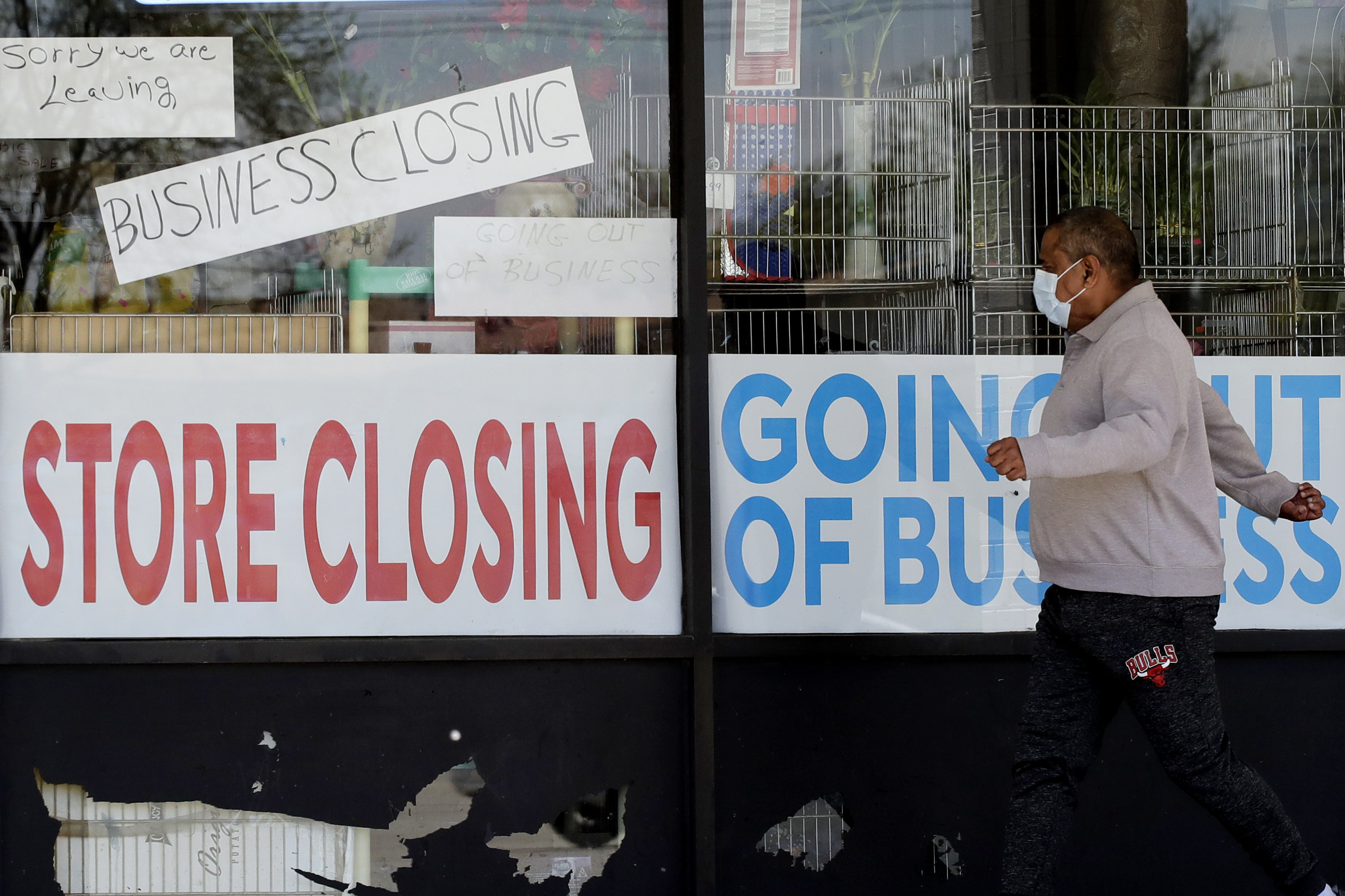A lapse in pandemic unemployment benefits could cause a greater consumer spending decline than the Great Recession


A free daily email with the biggest news stories of the day – and the best features from TheWeek.com
You are now subscribed
Your newsletter sign-up was successful
The $600/week coronavirus pandemic-related unemployment benefits helped keep consumer spending alive during the ongoing twin health and economic crises. That figure expired at the end of July, however, and nothing has replaced it yet, as Democrats and Republicans remain divided over how much unemployed individuals should receive. If the benefits disappear for good or shrink it could have "a really dramatic effect on the macroeconomy," researchers at the University of Chicago and JP Morgan Chase Institute found, per The Wall Street Journal.
The unemployment boost's expiration has left millions of Americans without the weekly payments. If the lapse continues indefinitely or if Congress decided against renewing the boost in some form, it could cause aggregate spending to fall 4.3 percent in one month, which is greater than the decline seen during the entirety of the 2007-9 recession, the study found. Some Republicans want to bring the number down to $200/week, fearing the current benefits will discourage people from working, despite studies suggesting the contrary. Their proposal wouldn't have quite as drastic an effect on the economy, but the study still estimates a significant 2.3 one-month spending drop. Even reducing the payments to $400/week would lead to a 1.4 percent decline.
That would have ripple effect. If the $600/week payments aren't reinstated, the U.S. economy could lose 1.1 million jobs by the end of the year and reduce gross domestic product by 1.27 percent, while the $200/week plan would likely lead to 1 million job losses, Mark Zandi, chief economist at Moody's analytics, estimates. Read more at The Wall Street Journal.
The Week
Escape your echo chamber. Get the facts behind the news, plus analysis from multiple perspectives.

Sign up for The Week's Free Newsletters
From our morning news briefing to a weekly Good News Newsletter, get the best of The Week delivered directly to your inbox.
From our morning news briefing to a weekly Good News Newsletter, get the best of The Week delivered directly to your inbox.
A free daily email with the biggest news stories of the day – and the best features from TheWeek.com
Tim is a staff writer at The Week and has contributed to Bedford and Bowery and The New York Transatlantic. He is a graduate of Occidental College and NYU's journalism school. Tim enjoys writing about baseball, Europe, and extinct megafauna. He lives in New York City.
-
 6 of the world’s most accessible destinations
6 of the world’s most accessible destinationsThe Week Recommends Experience all of Berlin, Singapore and Sydney
-
 How the FCC’s ‘equal time’ rule works
How the FCC’s ‘equal time’ rule worksIn the Spotlight The law is at the heart of the Colbert-CBS conflict
-
 What is the endgame in the DHS shutdown?
What is the endgame in the DHS shutdown?Today’s Big Question Democrats want to rein in ICE’s immigration crackdown
-
 TikTok secures deal to remain in US
TikTok secures deal to remain in USSpeed Read ByteDance will form a US version of the popular video-sharing platform
-
 Unemployment rate ticks up amid fall job losses
Unemployment rate ticks up amid fall job lossesSpeed Read Data released by the Commerce Department indicates ‘one of the weakest American labor markets in years’
-
 US mints final penny after 232-year run
US mints final penny after 232-year runSpeed Read Production of the one-cent coin has ended
-
 Warner Bros. explores sale amid Paramount bids
Warner Bros. explores sale amid Paramount bidsSpeed Read The media giant, home to HBO and DC Studios, has received interest from multiple buying parties
-
 Gold tops $4K per ounce, signaling financial unease
Gold tops $4K per ounce, signaling financial uneaseSpeed Read Investors are worried about President Donald Trump’s trade war
-
 Electronic Arts to go private in record $55B deal
Electronic Arts to go private in record $55B dealspeed read The video game giant is behind ‘The Sims’ and ‘Madden NFL’
-
 New York court tosses Trump's $500M fraud fine
New York court tosses Trump's $500M fraud fineSpeed Read A divided appeals court threw out a hefty penalty against President Trump for fraudulently inflating his wealth
-
 Trump said to seek government stake in Intel
Trump said to seek government stake in IntelSpeed Read The president and Intel CEO Lip-Bu Tan reportedly discussed the proposal at a recent meeting
